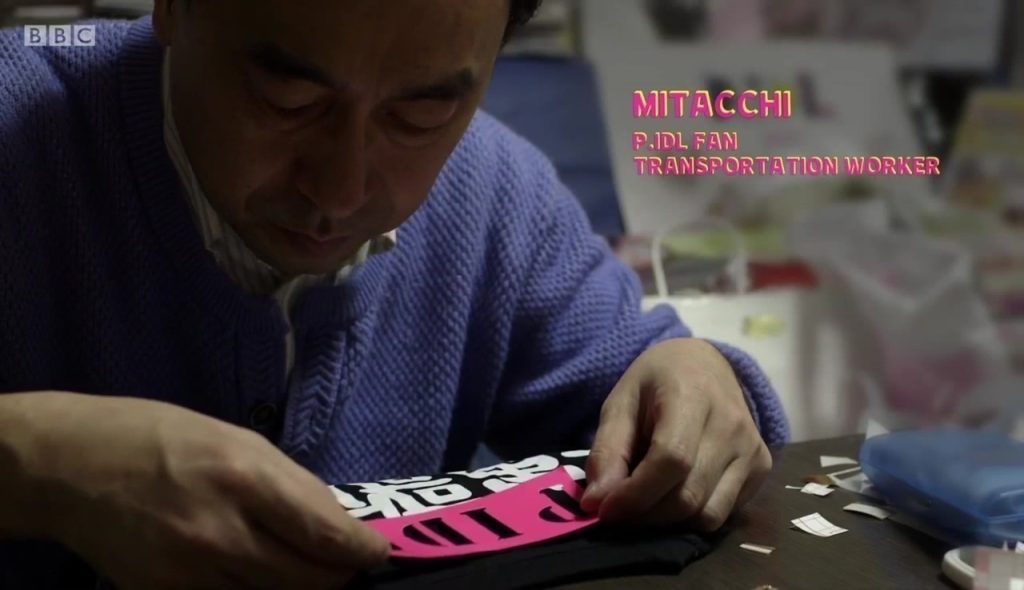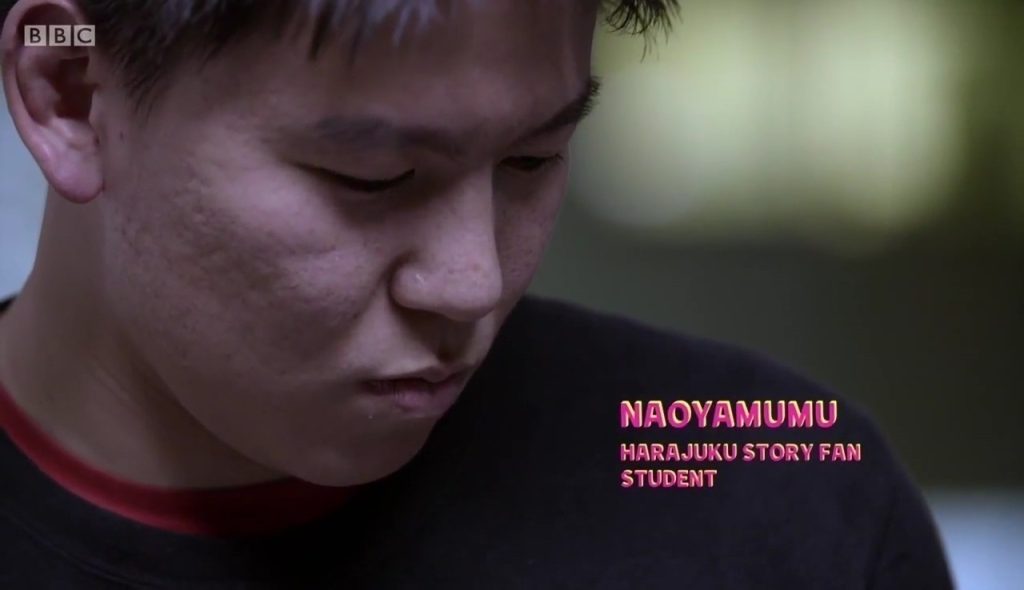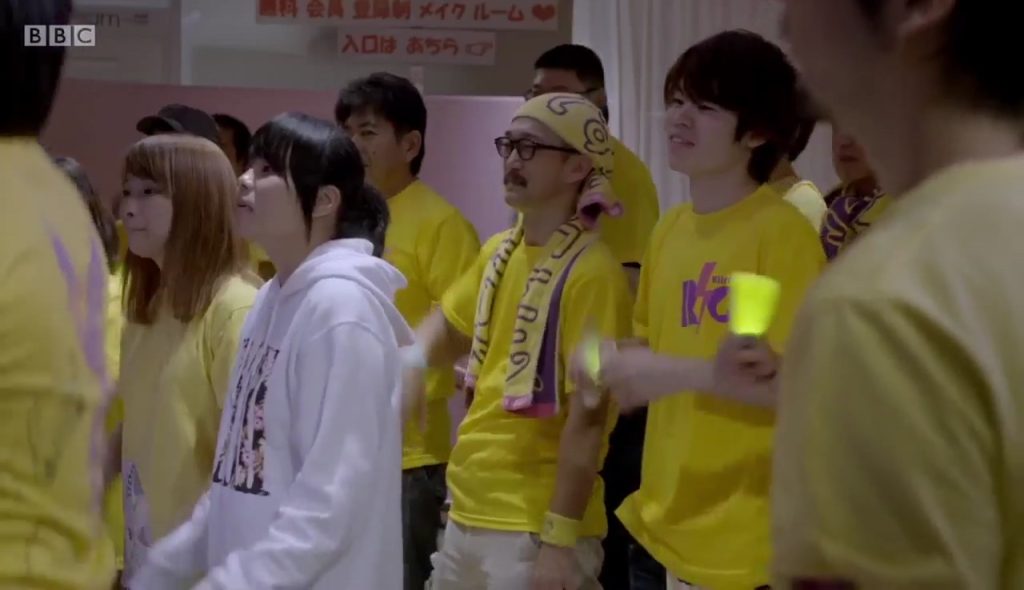This documentary becomes depressing when it comes to profiling the fans. With the way this program has been structured, the men they follow are not made out to be very sympathetic figures. It is hard to feel any sense of empathy for their situations at all. Viewers may find that these men have made some rather poor life choices in pursuit of what is essentially a hobby.
Koji is shown to have gone HAM on being a wota after a failed relationship and also appears to be in the middle of a mid-life crisis. He quits his salaryman job for something more menial that allows him the freedom and time to follow Rio.
He finds her as some embodiment of his lost potential, and to make up for his failures; he tries to help her succeed with his support as a fan. Yet when asked about taking some of that inspiration and applying it to himself, he gets all dark, saying he only has some limited time to have fun before he gets all sorts of diseases and cannot enjoy idols as much.

Mitacchi once had a loving relationship with his elderly parents and a significant other. That all ended once he met a member of the idol group P.IDL at a pachinko parlour cafe she was working at. After that meeting, he dedicated himself to following his oshi (Yuka) and her group, abandoning his relationship and his ties with his family. In addition, he abandoned any hope of saving money for the future as he spends about $2000 per month on P.IDL.

Naoyamumu is probably the only one of the three men who appear to be not too overly into his idol fandom. Or at least he hasn’t gone completely off the deep end like his contemporaries in this documentary. When asked about finding a girlfriend at his university, he states it is too much work, and he does not want to be tied down in a relationship yet.
That statement comes into question due to his affinity for following junior idols. You know, which might be a little not okay for some people who don’t understand the idol culture.

The thing to keep in mind when watching this program is that these men do not represent all idol fans. They are on the extreme ends of the spectrum and are more like a representation of the stereotypical image of idol fans to outsiders.
And that is where this documentary drops the ball. While the entertainment value of watching these men is high, who they are is not a fair look at who makes up the Japanese idol fandom. You see the odd female fan in the wild in the footage from concerts.
This documentary does not expand to other fans of either sex who may not be as hardcore as the individuals they followed but also enjoy the same idols.
Considering the scope of this documentary, as stated by its director, one could argue that the less than favourable image of idol fans are unintentional.
Initially, our idea was to follow a few aspiring idol singers. I also thought that I could sympathise and identify more easily with the girls as I was once a girl in Japan. And I didn’t want to have much to do with the fans even though they are the same generation. I had all sorts of preconceptions about middle-aged men who fantasize about teenage girls.
The film ended up becoming as much about their fans – the men who have become increasingly disconnected from women of their age and shy away from real relationships. Making this film really forced me to look at our generation and what we have gone through in post-bubble Japan. While I don’t condone their behavior, I now have a deeper understanding for why they act or think the way they do.
Whether unintentional or not, this documentary doesn’t do a lot to break any pre-existing stigmas. It only reinforces the view of Japanese idol fans falling into a preset group of outdated qualifiers and ignoring everyone else who doesn’t fit that mould.

















